Jeff Beck

Musician
Birth Name: Geoffrey Arnold Beck
Birth Date: June 24, 1944
Death Date: January 10, 2023
Birth Place: Wallington, Surrey, England, UK
Bands: The Yardbirds
Though Jeff Beck's guitar prowess and influence placed him on par with such icons of the instrument as Eric Clapton, Jimi Hendrix, and Jimmy Page, he forged an entirely different career path over the course of a five-decade career. He preferred to experiment with jazz, electronica, and blues-rock rather than seek chart success. He initially established himself in the mid-1960s as Clapton's replacement in the Yardbirds, who rode his penchant for squalling, feedback-driven blues-rock to a second wave of popularity before dismissing him in 1966.
Beck then formed his own band, The Jeff Beck Group, which set the foundation for hard rock and heavy metal through its high-volume covers of classic blues material. The 1970s and 1980s found Beck taking a mercurial approach to music, moving from power three-pieces like Beck, Bogert & Appice to jazz-fusion on his hit record Blow By Blow (1975). Lengthy absences due to health issues undermined his output in the 1980s, but Beck roared back in the 1990s with a slew of idiosyncratic albums that saw him branch out into techno-driven material while retaining his signature guitar fury. He continued to follow his own muse into the 2000s, netting a slew of Grammys and two inductions into the Rock and Roll Hall of Fame along the way. Jeff Beck's talent made him not only one of the most significant rock guitarists of the 20th century and beyond, but a living bridge between the guitar legends of the past and the possibilities of the instrument's future.
Born Geoffrey Arnold Beck on June 24, 1944, in the Surrey county town of Wallington, England, he developed a fascination for the electric guitar at the age of six when he heard Les Paul's rendition of "How High the Moon." Astonished by the range of sounds that Paul could produce with his instrument, Beck soon began playing on a borrowed guitar while attempting to build his own from cigar boxes and a fence post for a neck. He continued to absorb influences during this period, including Cliff Gallup, guitarist for Gene Vincent and the Blue Caps, as well as B.B. King and Memphis soul musician Steve Cropper.
Beck briefly attended the Wimbledon College of Art before launching his music career with the Rumbles in 1963. Two years later, the Yardbirds—on the recommendation of his longtime friend, Jimmy Page—hired him to replace the departing Eric Clapton. His tenure with the group lasted less than two years but proved to be among their most innovative years. Beck's experimentations with feedback and distortion on songs like "Heart Full of Soul," "Shapes of Things," and "Over Under Sideways Down" not only provided the Yardbirds with a slew of Top 40 hits but also placed them at the vanguard of the British rock scene during the late 1960s. Beck's success with the group largely surpassed their initial popularity with Clapton, which led to an unspoken rivalry between the two players that lasted for decades. From June to October 1966, Beck and Page shared guitar duties in the Yardbirds, which resulted in the ferocious "Stroll On," a rewrite of the classic blues number "Train-Kept-A-Rollin'."
With Beck's extraordinary musical talents also came an explosive temper and unchecked perfectionism that often placed him at odds with the other Yardbirds. He was finally ousted from the group in late 1966 after consistently failing to appear at live dates on a U.S. tour, prompting a brief sabbatical until 1967, when he released his first solo single, "Beck's Bolero." Recorded while he was still a member of the Yardbirds, the one-off project featured a stellar lineup of players, including Page, John Paul Jones, keyboardist Nicky Hopkins, and the Who's Keith Moon on drums, all backing Beck on a proto-metal take on Ravel's "Bolero." The track reached No. 14 on the U.K. singles charts, as did its A-side, "Hi Ho Silver Lining," which featured Rod Stewart on backing vocals.
Stewart would subsequently join Beck's first post-Yardbirds band, The Jeff Beck Group, which also featured Hopkins, ex-Birds (and future Rolling Stone) Ron Wood on bass, and Mickey Waller on drums. The band quickly earned notoriety for its force-of-nature reworking of classic blues songs, as heard on its first two albums, the Top 20 album Truth (1968) and Beck-Ola (1969). A generation of future musicians, especially those in the hard rock and heavy metal fields, would later cite its thunderous sound as a primary influence on their own music.
Despite their initial success, The Jeff Beck Group splintered in 1969 due to tensions within the group. Stewart and Wood joined members of the Small Faces to form the Faces, while Beck teamed with Tim Bogert and Carmine Appice, who served as the rhythm section for Vanilla Fudge. However, recording plans for the power trio were halted after Beck suffered a skull fracture in a car accident that year. While Beck recovered, Bogert and Appice formed the blues-rock supergroup Cactus, prompting the guitarist to assemble a new lineup of The Jeff Beck Group anchored by drummer Cozy Powell and guitarist Bobby Tench. This arrangement produced two records, including the soul-influenced Jeff Beck Group (1972), before again splintering due to internal conflicts. When Cactus folded in 1972, Bogert and Appice joined The Jeff Beck Group, which eventually became Beck, Bogert & Appice. Their eponymous 1973 LP made little impact upon listeners, save for a modest hit with a cover of Stevie Wonder's "Superstition." Beck then nullified all possible follow-ups by quitting the group during sessions for a second album in 1974.
After a year of relative quiet, Beck emerged in 1975 with Blow by Blow (1975). Produced by George Martin, the album's all-instrumental approach showcased Beck's growing interest in jazz-fusion. The record was warmly received upon release, reaching No. 4 on the Billboard chart, which was the highest placement for any of Beck's records. His next record, Wired (1976), followed a similar musical path, abetted by keyboardist Jan Hammer and drummer-composer Narada Michael Walden. Beck would then co-headline a tour with Hammer's eponymous group in 1976, which spawned a live album the following year. He would then spend much of 1977 in seclusion before launching a prospective group with jazz bassist Stanley Clarke and drummer Gerry Brown. The lineup would undergo several permutations before Beck would enter the studio with Hammer for 1979's There And Back. Five years would pass before Beck would release another record, during which he appeared to patch up his differences with Clapton by performing with him at the Secret Policeman's Other Ball in 1982, as well as other charity shows.
Beck broke his long absence from recording in 1985 with Flash, which found him embracing a pop-rock sound as well as more vocal tracks. The Top 40 album proved to be his most successful solo effort, producing not only his sole substantial U.S. hit single with a cover of "People Get Ready" with Rod Stewart, but also his first Grammy for "Escape," which netted Best Rock Instrumental Performance. Another period of four years elapsed before he produced its follow-up, Jeff Beck's Guitar Shop (1989), which earned a second Grammy for Best Rock Instrumental performance. A co-headlining tour with Stevie Ray Vaughn followed the release, after which Beck returned to a state of semi-seclusion.
In later interviews, Beck would attribute this period of sporadic activity to a serious case of tinnitus, a painful hearing condition also suffered by Pete Townshend of the Who. The affliction would keep him away from recording or touring until 1992, when he guested on Roger Waters' album, Amused to Death. An atypical flurry of activity soon followed, including the soundtrack for the Australian TV series Frankie's House (Australian Broadcast Corporation, 1992) and Crazy Legs (1993), a tribute to Gene Vincent and his guitar idol, Cliff Gallup. Beck was also inducted into the Rock and Roll Hall of Fame in 1992 as a member of the Yardbirds, during which he reminded attendees, with typical puckish humor, that the band had, in fact, once kicked him out.
In 1999, he forayed into electronica with Who Else!, which marked the beginning of his collaboration with guitarist Jennifer Batten. The duo would tour together throughout 2000 before recording You Had It Coming in 2001. The record would generate his third Grammy for the single "Dirty Mind," while a fourth would come for the single "Plan B" from his 2003 album Jeff, which found him in collaboration with U.K. electronica specialists like Apollo 440. Subsequent touring and appearances with artists ranging from Kelly Clarkson and Morrissey to B.B. King kept Beck's music in a contemporary context while paying tribute to his blues-rock roots.
In 2008, he released Live at Ronnie Scott's, which brought Beck a fifth Grammy for his cover of the Beatles' "A Day in the Life" while also earning platinum U.S. sales for its accompanying DVD. The following year, Jimmy Page inducted Beck as a solo artist into the Rock and Roll Hall of Fame. Beck's winning streak continued in 2010 with the release of his 10th solo album, Emotion & Commotion, which had the highest chart placement of his career by debuting at No. 11 on the Billboard albums chart. The record, which featured collaborations with Joss Stone, Imelda May, and a 64-piece orchestra, would capture Grammys for Best Pop Instrumental and Best Rock Instrumental with a take on the classic aria "Nessun Dorma" and "Hammerhead," respectively.
The following year, he paid tribute to Les Paul with the live album Rock 'n' Roll Party (Honoring Les Paul) (2011), which was recorded at New York's Iridium Jazz Club, where Paul himself played every week until his death in 2009. That same year, Beck received honorary doctorates from the University of the Arts London and the University of Sussex. Jeff Beck died on January 10, 2023, at the age of 78.
Credits

Loud: Best of 2022

Eric Clapton's Crossroads Guitar Festival 2019

Jeff Beck: Still on the Run

Jeff Beck: Live at the Hollywood Bowl

Soundbreaking

Jeff Beck: Live in Tokyo

Jeff Beck Feat. Rod Stewart: People Get Ready

LeAnn Rimes Feat. Rob Thomas, Jeff Beck: Gasoline & Matches

Produced by George Martin

Jeff Beck: Rock 'n' Roll Party Honouring Les Paul

Jeff Beck Honors Les Paul

The 52nd Annual Grammy Awards

Jeff Beck Live at Ronnie Scott's
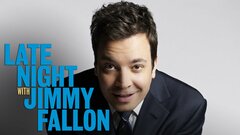
Late Night With Jimmy Fallon

Queen: The Magic Years

Jeff Beck at Ronnie Scott's
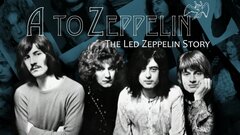
A to Zeppelin: The Story of Led ZeppelinStream

American Idol

Free Jazz Festival
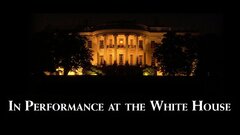
In Performance at The White House
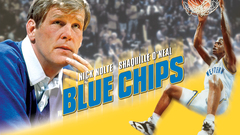
Blue ChipsStream
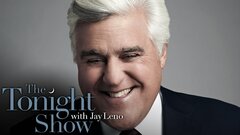
The Tonight Show With Jay Leno

Lenny Live and Unleashed

Saturday Night LiveStream






